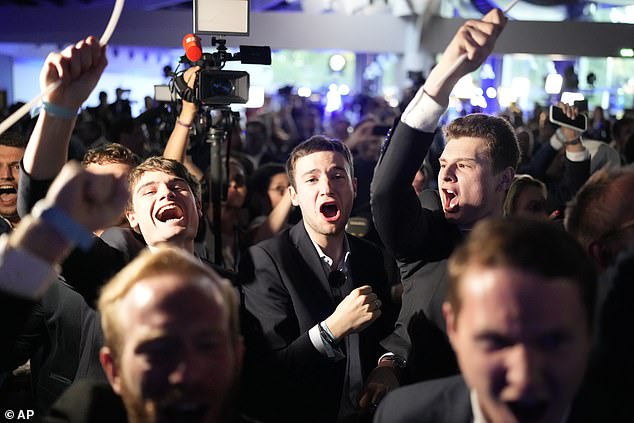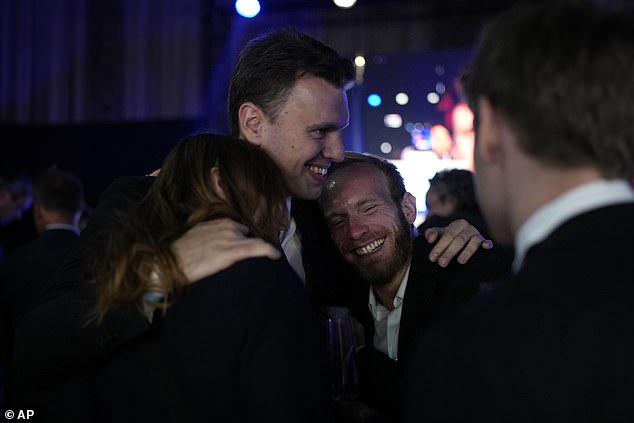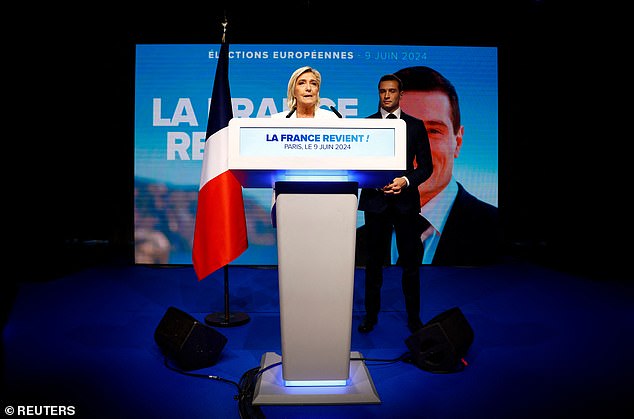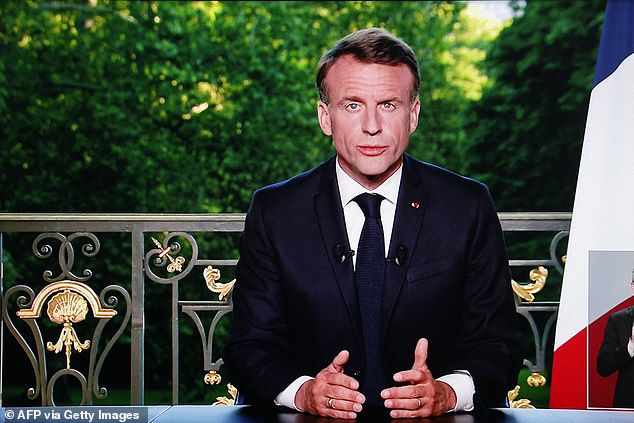- This story is developing, there will be more to follow.
French President Emmanuel Macron called early elections in the wake of a massive shift to the right during the country’s European Union elections.
Macron suffered a major defeat tonight after Marine le Pen’s National Rally party took home a projected 31.5% of the vote following the country’s European Union elections.
Meanwhile, his Renaissance party suffered one of the worst defeats ever experienced by a party in French government, winning only 15.2% of France’s votes.
Macron dissolved the French parliament and called elections after the major defeat, announcing that the first round will take place on June 30, while the second will take place on July 7.
After his announcement, he stated: “France needs a clear majority in serenity and harmony.” To be French, deep down, it’s about choosing to write history, not getting carried away by it.’
French President Emmanuel Macron (pictured) called early elections following a massive shift to the right during the country’s European Union elections.

Supporters of the French far-right national rally react at the party headquarters on election night after French President Emanuel Macron announced he is dissolving the National Assembly.

A woman was seen drinking happily as Macron called early elections
Supporters of the far-right National Rally party were seen joyfully celebrating the dissolution of the French parliament, buoyed by their success in the EU elections.
The EU elections, which have been held across the continent for the past three days, are the first since Brexit, the pandemic and the Russian invasion of Ukraine.
In addition to this, many voters have been affected by the cost of living, are concerned about migration and the cost of the green transition, and are concerned about geopolitical tensions, including the war in Ukraine, and hardline, extreme parties. right have taken advantage of this situation. and offered the electorate an alternative.
It is not just French citizens who have been courted by the far right tonight.
In Germany, Chancellor Olaf Scholz’s Social Democratic Party (SDU) was projected to come in third place, winning just 14% of the vote, a record low for the party according to German broadcasters who commissioned exit polls.
Meanwhile, far-right and far-right parties in Germany are expected to take the lead.

Many voters have been affected by the cost of living, are concerned about migration and the cost of the green transition, and are concerned about geopolitical tensions.

The EU elections, which have been held across the continent for the past three days, are the first since Brexit, the pandemic and the Russian invasion of Ukraine.
The conservative alliance of the Christian Democratic Union (CDU) and the Christian Social Union (CSU) obtained 29.5% of the votes.
The far-right Alternative for Germany (AfD) came in second, with 16.5% of the vote, a huge increase of 5.5% compared to the 2019 EU elections.
A similar result was seen in exit polls in Austria, with the far-right party FPOe leading the vote count.
If confirmed, it would be the first time the group has led a national vote in the Alpine country.
The Freedom Party (FPOe) obtained 27 percent of the votes, ahead of the conservative People’s Party (OeVP), according to polls published by the country’s main media outlets.
The EU Parliament, which will have 720 seats once the elections are completed, is made up of multi-party factions.
While center-left and center-right factions have largely dominated the bloc’s parliament since its last election in 2019, these parties are expected to lose seats as more and more Europeans turn to more extreme parties in the hope that can resolve their problems with the United States.
More to follow.

